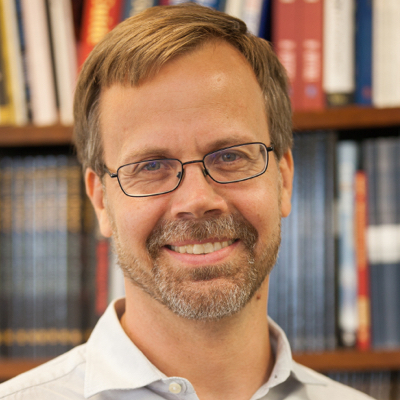November 24, 2013
Alexander Main
Los Angeles Times, November 24, 2013
In June 2009, democracy, human rights and the rule of law were shattered in Honduras. Democratically elected President Manuel Zelaya was flown out of the country at gunpoint and, in the days and months that followed, pro-democracy demonstrations were violently repressed and critical media outlets shut down. Elections organized a few months later under the coup regime did nothing to remedy the situation. Held in a climate of repression and boycotted by opposition groups, these elections were widely seen as illegitimate by many Hondurans and most governments in the hemisphere – with the notable exception of the United States.
On Nov. 24, new presidential and legislative elections will offer Honduras an opportunity to finally move forward. This time, a score of political parties is participating, including a new party –LIBRE – whose presidential candidate, Xiomara Castro de Zelaya, wife of the deposed president, has had a narrow lead in the polls. But will these elections be truly free, fair and transparent?
The country’s dire human rights situation has had a chilling effect on the election campaign and could affect voter turnout. Violence has soared over the last four years, and Honduras now has the highest per capita homicide rate in the world. Since the 2009 coup there has been a troubling pattern of attacks and intimidation targeting opposition activists, journalists, indigenous community leaders, campesinos and other sectors that take on the powerful, be they the government, land owners or organized crime networks. More recently, opposition candidates and activists and their families have been violently attacked in increasing numbers and even assassinated, according to human rights groups.
Amnesty International recently noted, “a key concern is that the police and army are actually contributing to the violence instead of combating it, something which is exacerbated by an almost total lack of accountability for the abuses they have committed.” Rather than reining in the country’s out-of-control security forces, the ruling National Party has unleashed military troops in urban areas. Juan Orlando Hernández, the National Party’s presidential candidate and head of the National Congress, announced the deployment in October of 1,000 heavily-armed “military police” agents, promising to put “soldiers in every neighborhood.” These soldiers are supposedly tasked with civilian policing and focused on gang activity. But already they have raided the homes of trade unionists, LIBRE campaigners and others in what many fear could be the start of a new wave of political intimidation.
This new force has featured prominently in Hernández campaign ads. Some citizens may see troops in city streets as a needed response to the high crime, but others fear that they are an instrument of further repression, particularly in the event of a problematic electoral process.
Flawed elections would be a tragedy for Honduras, but remain a distinct possibility. Although there will be hundreds of international observers to monitor the polls, both from U.S. government-funded groups and civil society networks, allegations of fraud have haunted past elections, including the National Party’s primaries last year. If significant irregularities should occur, there is little in the way of checks and balances to effectively deal with it. The National Party has assumed control of the judiciary and other key institutions – many say illegally — to whom political parties would have to turn for redress.
Clean, fair elections would allow Honduras to begin undoing the legacy of the 2009 coup. As a report recently published by my colleagues Jake Johnston and Stephan Lefebvre shows, it is not just democracy and human rights that have suffered since the coup; it is also the country’s economic and social welfare. In the years immediately before the coup, economic growth surged and inequality fell, but since June 2009, Honduras has seen the most rapid rise in inequality in Latin America and now has the most unequal distribution of income in the region. Under Zelaya the poverty rate decreased by 7.7%, while the extreme poverty rate decreased by 20.9%. But between 2010 and 2012, they went up by 13.2% and 26.3%.
The study indicates that although the global economic downturn played a role, the institutional turmoil caused by the coup, and the post-coup government’s policy choices are likely responsible for much of this decline.
What can the U.S. do? In an October 15 letter to Secretary of State John Kerry, Reps. Raul Grijalva (D-Ariz.), Mike Honda (D-San Jose) and Hank Johnson (D-Ga.) offered some sound advice, calling on the State Department to “use every available means to ensure free and fair elections in Honduras” and “speak forcefully against the pattern of concerted attacks targeting human rights defenders and the opposition.”
In addition to speaking out against attacks, dozens of members of Congress have also urged the U.S. to suspend millions in security assistance if alleged abuses by military and police aren’t promptly investigated and dealt with.
Going forward, U.S. assistance should be predicated on accountability for perpetrators of rights violations and a demonstrated commitment to applying the rule of law to all of society, from the wealthiest and most powerful as well as the poor and disenfranchised, to corrupt security forces as well as the organized crime figures they are supposed to pursue.
Finally, should Sunday’s elections be marred by credible reports of irregularities and abuses, the Obama administration should refrain from immediately and unilaterally endorsing them – as occurred in 2009. Instead, the U.S. should work with a broad coalition of governments in the region to urge Honduran authorities to investigate alleged violations and take any necessary corrective measures. These elections are far too important to Honduras’ future to get wrong.
Alexander Main is senior associate for international policy at the Center for Economic and Policy Research in Washington, D.C.






